To mark the birthday of the Abkhazian director, the WAC Information Department prepared material about his life and work.
Selma Bazba
Abkhazian director, People's Artist of Abkhazia, screenwriter, member of the Union of Cinematographers of Russia, director of the “Abkhazfilm“ studio - all this is about Vyacheslav Ablotiia, who stood at the origins of Abkhazian cinema.
Vyacheslav Andreevich was born in the town of Gudauta, Abkhazian ASSR, at the height of the Great Patriotic War in 1942. His father worked as the manager of the Gudauta bakery, and his mother was a housewife and raised children. His interest in creativity arose from an early age. Ablotiia was fond of singing, dancing and many other creative expressions. His mother's upbringing has aided him here.
"In the evenings, we would gather at home and just sing songs. We also loved going to the cinema. I remember the Gudauta cinema, the gravel-covered benches and war movies. It was a big illusion for us then."
However, neither Vyacheslav Andreevich himself nor his relatives took these hobbies seriously. In the post-war period, the professions of pilots and naval officers were popular. The desire to become one of those who would glorify the Motherland with a valiant name did not pass by young Vyacheslav.
That is exactly what he did. However, he distinguished himself with his services to the Fatherland not in the military field, but in cinema. Ablotiia became a director.
After completing the fourth grade, his parents sent the boy to the Gagra boarding school. This was due to school discipline and a good education.
"It was good there, very good. I remember the barracks - such small little houses in which we lived. I remember our teachers and how they took care of us."
He recalls the period of study at the boarding school with exceptionally warm words. It was from this time that his active and serious involvement in art began. The students were given a wide range of directions.
Vyacheslav played in the school orchestra. After finishing his studies, he served two and a half years in the army. After that, he entered the Tbilisi Theatre Institute, acting department. We nicknamed our group "Stanislavsky's great-grandchildren".
This was explained by the fact that one of our masters was Anzor Tavzoroshvili, who studied in Leningrad with the famous director Boris Sushkevich. He, in turn, was a student of Konstantin Stanislavsky. Well, that's where it all began.
His creative career began with the Abkhazian Theater, where he found himself after graduating from the university in 1968. Versatile Slava was interested in many things. In addition to his main theatrical activity, he was fond of photography. His camera captured theater artists, backstage, and scenery.
Vyacheslav Andreevich's abilities manifested themselves in carpentry and electrics. He recalls that when something needed to be fixed, his colleagues always called him.
"Slava, you’d better know a lot about one thing and a little about everything," the director recalls the words of the company commander, which the then young soldier remembered for the rest of his life.
Returning to the acting profession: he did not like leading roles. He played them, but preferred episodic roles, bright and extraordinary characters who appeared on stage for a short period, but left an indelible impression in the hearts of the audience. The artist's theatrical career developed rapidly. Under the leadership of Sharakh Pachaliia, together with colleagues in the workshop Amiran Taniia, Sergey Sakaniia, Mazhar Zukhba, Ablotiia opened the theater of satire and humor "Charirama".
The artists traveled around the country with their satirical sketches, gaining national fame and recognition. Ablotiia undoubtedly loved everything he touched, but the pursuit of new knowledge and hobbies did not bring him peace.
This is how the ten-year period of theatrical career of Vyacheslav Andreevich came to its conclusion. He left the Abkhazian Theater to conquer new heights - he went to Moscow and entered the advanced courses for directors. With special love he remembers the times of admission and training, his teachers and classmates.
There were 170 applications for the all-Union competition. Future leaders of groups Eldar Ryazanov, Nikita Mikhalkov and Georgy Daneliia were part of the admissions committee and recruited comedy writers. Only 12 people passed the final selection.
“During the entrance exam they say, you have an uprising in 1979 about joining Russia and separating from Georgia. Tell us something funny. I thought and thought, and then remembered... There was such a case... people sit in the square all night with slogans to join Russia. They sit for a long time, and one old man, you see, woke up at night and asked, “It got cold, have we already joined them?” The members of the commission almost died laughing, they were all cried out of laughter,” recalls Ablotiia.
Thus, after successfully passing the entrance exams, Vyacheslav Andreevich found himself in a group under the supervision of Georgy Daneliia.
Georgy Daneliia, Eldar Ryazanov, Nikita Mikhalkov, Andrei Tarkovsky, Yevgeny Yevstigneyev, Leonid Trauberg and many other masters of Soviet cinema taught students.
The lectures were interesting and highly specialized. Students had the right to invite their favorite speakers and refuse those they did not like.
"We chose one or two lectures. For example, Pavel Chukhrai came to us a couple of times. The group was not interested in anything else. We did not let Tarkovsky go for a whole month. He was a brilliant man."
Following his glorious student years in Moscow, Ablotiia went to Georgia, where he began to independently shoot films. He worked at the "Georgia-Film" studio until 1989. It was there that Vyacheslav Andreevich shot the first film in the Abkhaz language "Souvenir" in 1986. The script for the film was written by the director's friend, writer Daur Zantariia.
The history of Georgian-Abkhazian relations by this time was moving to the stage of inevitable confrontation. Not wanting to stay in Tbilisi any longer, he moved to Sukhum with his family.
Vyacheslav did not give up and in a difficult period for Abkhazia managed to achieve the opening of the first Abkhazian film studio on the basis of the Ministry of Culture.
The staff of the “Abkhaz-Film” studio consisted of five people - several artists, an accountant and a driver. The first fruits of the studio's success can undoubtedly be considered the film "Kolcheruky". To create the film, the employees of “Abkhaz-Film” went to St. Petersburg. There they agreed with the Leningrad film crew, which was later brought to Abkhazia. Filming was completed before the well-known events of 1992, but the work on the dubbing continued in St. Petersburg, where the first screening took place. The war was already underway in Abkhazia.
"The “Lenfilm” guys helped us a lot. There was no money left at all. Some helped with money, others with clothes."
A little later, Ablotiia and his team moved from St. Petersburg to Sochi. By this time, a headquarters for helping refugees and the wounded from Abkhazia had already been organized here.
“We were on duty day and night. Together with Liana Achba, we met the dead and wounded at the port, sent those in need to medical institutions, and the bodies of the dead to their families.”
During this difficult period, the second screening of “Kolcheruky” took place in Sochi.
“The night before the premiere in Sochi, we prepared a banner. In the morning, we noticed that it had been cut. Well, it was probably a provocation. The premiere took place anyway. We showed the film to all the refugees from Abkhazia. The film was received positively.”
Upon returning to Abkhazia, immediately after the liberation of Gagra, the premiere of the film took place in Gudauta.
“Well, imagine, there is a war going on, the people are mourning, and we brought a comedy to Abkhazia. Of course, I was worried about how the public would perceive the genre. However, everything went just great, the audience laughed. Perhaps for them it was a chance to distract themselves from grief."
In total, Vyacheslav Andreevich made two full-length films - “Souvenir” and “Kolcheruky“. All his other works, as they say in cinema, are "short films".
After the war, the director's main activity became dubbing. There were many reasons for this. But the main one was that the studio had a small budget, there was no money from private funds, and it was extremely difficult to create a film in conditions of financial vulnerability.
Difficult circumstances marked the beginning of a new era in the director's work.
He began dubbing films and cartoons. It is worth noting that Ablotiia succeeded in this area and became the first specialist in Abkhazia to dub foreign films into his native Abkhaz language. By now, the register of dubbed cartoons has been significantly replenished. Then came work on films.
The work is meticulous, takes a lot of time, requires constant concentration. It takes about 6 months to dub a full-length film, says Vyacheslav Andreevich.
"The most difficult thing in dubbing is working with synchronous text. The text needs to be put into articulation. For this work, you need a musical ear. For example, if character "A" speaks, you need to end it with "A". I play each role myself, checking the sound and articulation."
Traditions and love for art are unchanged in the creative family of Vyacheslav Andreevich. His wife Marina is a theater actress, his daughter Anna helps with dubbing, and his son Sandro is a young director who has already presented such feature films as "Aitsakra", "White Mask", "Witch" to the Abkhazian audience.
To the question about the future of Abkhazian cinema, Vyacheslav Andreevich answers:
"Yes, it will definitely have a future. There are young and talented guys, they work, shoot short films and full meter, take part in international film festivals, receive awards, and this is very pleasing. I tirelessly repeat, let's repair something, open a cinema hall. Let it be a cinema of Abkhazian films. Imagine, having the opportunity to watch Abkhazian movies every day, organize free screenings for children and listen to the Abkhazian speech on the screen. This, of course, requires a lot of financial investment, but the main thing is that it is an investment in our future.”
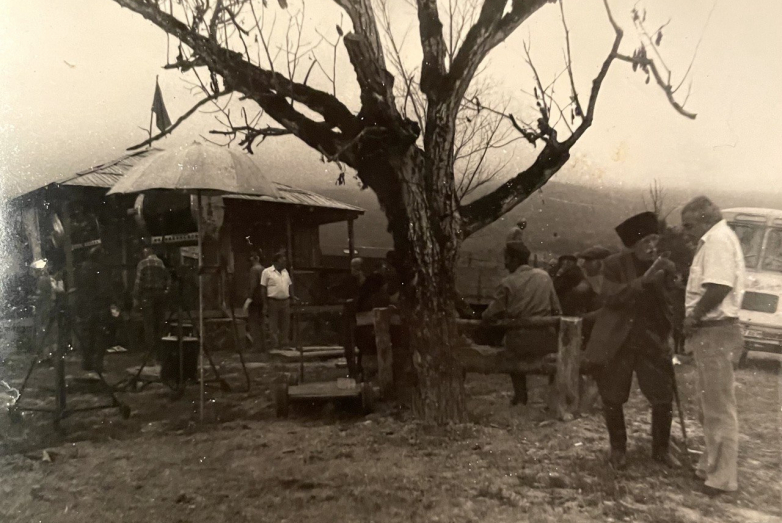
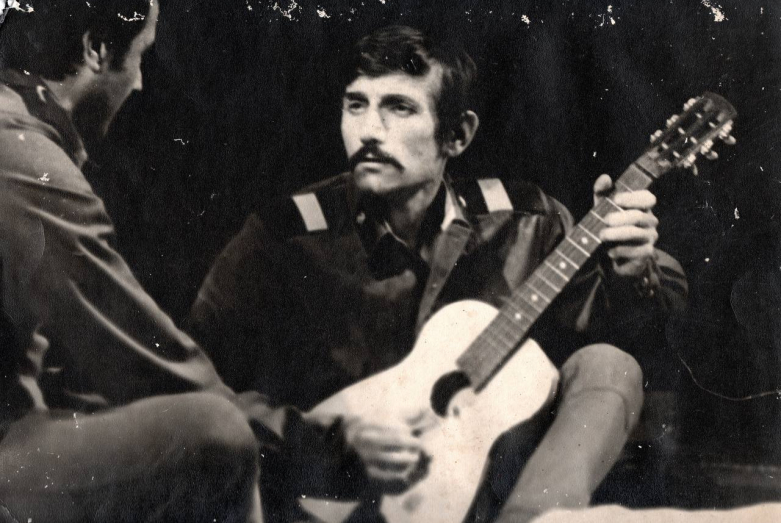
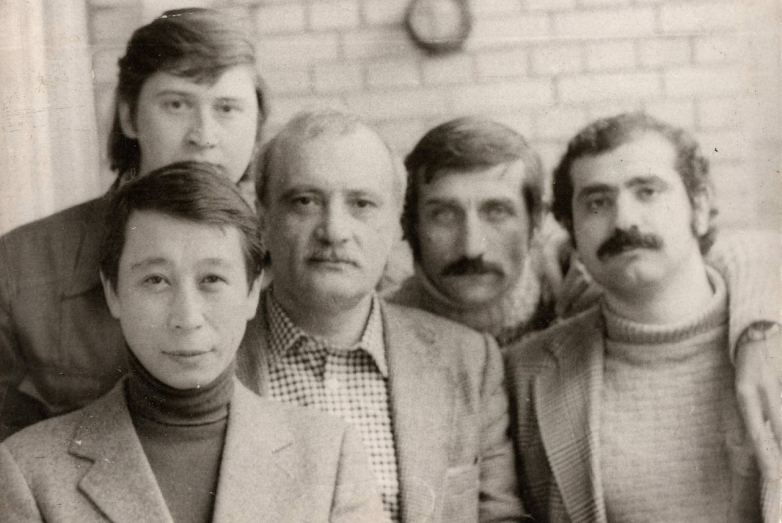
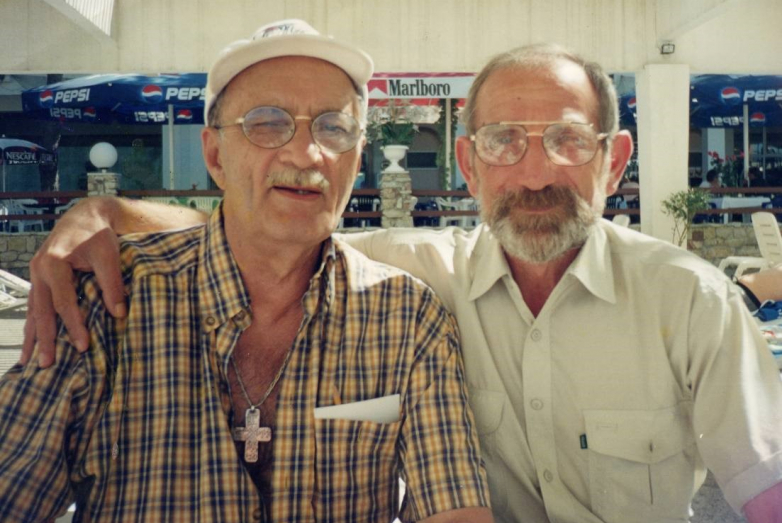
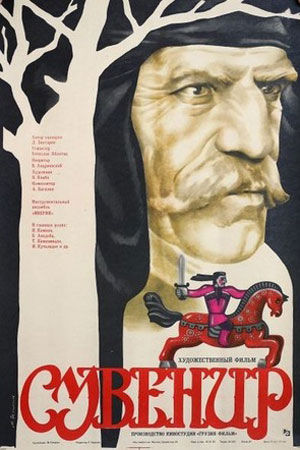
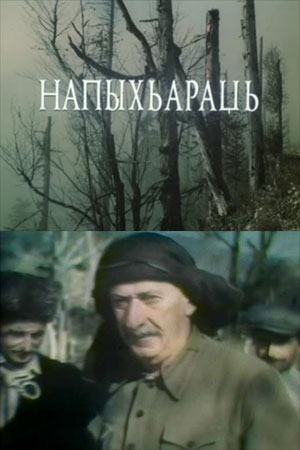
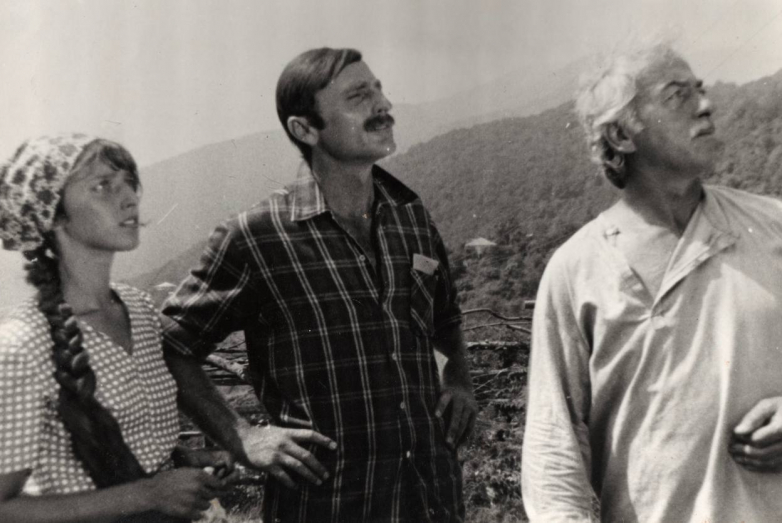
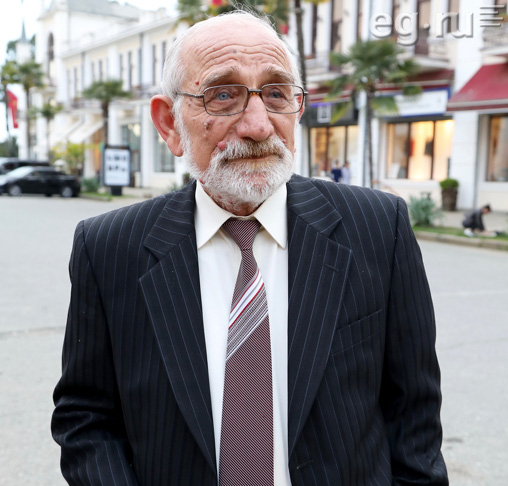
to login or register.